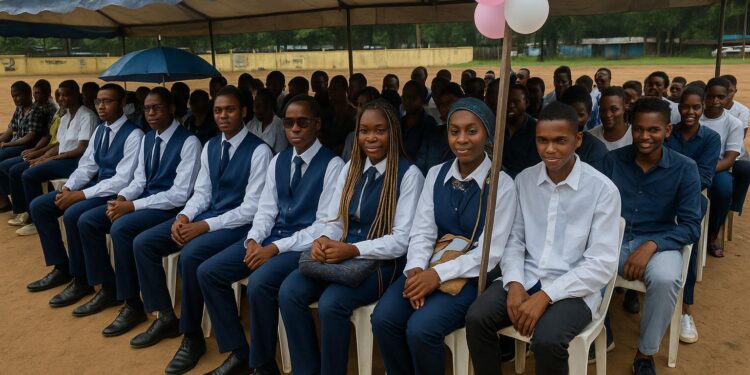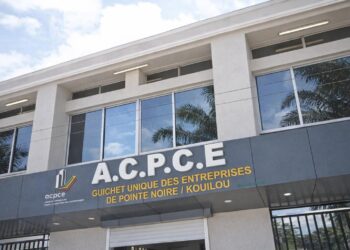Scholarships boost Congo AI talent
Five hundred young Congolese have just secured full scholarships at the School of Digital and Artificial Intelligence, ENIA 2.0, following an official presentation in Brazzaville on 3 November. The institute’s second intake signals a scaling-up of local talent development.
The free programme responds to a surge in demand for training in data science and machine learning, areas still scarcely covered in Congo-Brazzaville’s conventional curricula. By removing tuition fees and handing each learner a starter kit, ENIA hopes to broaden inclusion beyond the capital.
Government drive for digital skills
Officials present at the ceremony highlighted the alignment between ENIA’s initiative and the government’s broader digital transformation roadmap. While the institute remains privately run, its scholarship plan complements public efforts to equip youth with future-proof skills and stimulate home-grown innovation.
Director-General Mongo Ossebi Pierre reiterated that ENIA’s pedagogical policy rests on three pillars: competence, rigour and creativity. In his words, “Congo needs specialists who can code, analyse and imagine”. The pillars will therefore guide every module, from introductory programming to advanced AI product design.
Inside the Brazzaville campus
The second-year cohort welcomed newcomers during an open-house that doubled as a distribution point for academic kits containing laptops, routers and reference books. The gesture, financed by the school and sponsors, aims to place all students on equal technological footing from the very first day.
One scholarship recipient described the moment as “the start of a dream”, stressing that free access removes the financial anxiety that often derails tertiary studies. His classmates, drawn from multiple departments including Kouilou and Plateaux, echoed the commitment to attend classes consistently and “serve Congolese society”.
A three-year industry-linked curriculum
ENIA 2.0’s programme spans six semesters. The first year focuses on computational thinking and Python, the second on data engineering, while the final year dives into neural networks and entrepreneurial incubation. Students pitch capstone projects to a jury of local entrepreneurs and potential seed investors.
Beyond technical coursework, trainees receive coaching in soft skills such as project management and public speaking. Faculty members argue that pairing algorithms with communication abilities increases employability and prepares graduates to lead multidisciplinary teams in banks, start-ups or public agencies adopting AI solutions.
Financing the ‘Bourse mon avenir’
The scholarship drive falls under the banner ‘Bourse mon avenir’, an in-house fund targeting one thousand awards this academic year, including a tranche for Pointe-Noire. Founder Chirel Mongo disclosed that private donations, revenue from short executive courses and in-kind tech partnerships sustain the model.
He added that the school does not yet receive direct budgetary transfers from the state but maintains “constructive dialogue” with the Ministry of Posts, Telecommunications and Digital Economy. Such engagement, he believes, will smooth pathways for graduates entering civil-service innovation units or public tenders.
Regional demand for AI professionals
Central African firms increasingly cite analytics and automation as strategic priorities, yet struggle to recruit locally. According to ENIA administrators, many enterprises still import expertise from Europe or Asia, a situation they aim to reverse by supplying a steady stream of home-based specialists.
The three-year horizon aligns with forecasts that corporate spending on AI solutions in sub-Saharan Africa will accelerate from pilot projects towards scaled deployment. Graduates capable of configuring chatbots, fraud-detection engines or precision-agro platforms are therefore expected to find roles shortly after completion.
Opportunities for investors and partners
As ENIA scales, management envisages opening satellite labs in secondary cities and offering paid reskilling bootcamps for working professionals. Venture funds and equipment suppliers are being courted to co-finance labs, sponsor hackathons and secure early access to promising student prototypes.
Local banks, keen to digitise customer journeys, have already approached the school to craft elective modules on risk modelling. The dialogue hints at a virtuous circle wherein corporate demand shapes curricula while the campus becomes a test-bed for indigenous software products.
Safeguarding quality and inclusion
To keep standards high, ENIA uses a selective admission process combining baccalaureate grades and an aptitude test. Yet the leadership emphasises that geographic and gender balance remain priorities: at least forty percent of this cohort are women, a figure billed as historic for the sector.
Mentorship pairs have been formed between first-year women and second-year counterparts to curb attrition. The school is also rolling out awareness sessions in public high schools, hoping to demystify AI and encourage under-represented groups to view the discipline as accessible and socially relevant.
Next steps on the roadmap
In early 2024 the institute intends to launch a bilingual online portal that will broadcast selected lectures and allow diaspora experts to volunteer as reviewers. The management believes this hybrid model can multiply reach without compromising the immersive, project-based ethos of the core programme.
Measured optimism
Stakeholders left the ceremony confident yet realistic. Transforming enthusiasm into employment will require continuous curriculum updates and strong industry linkages. ENIA 2.0’s second intake, however, suggests that Congo-Brazzaville’s drive to anchor artificial intelligence locally is gaining both momentum and credibility.












































